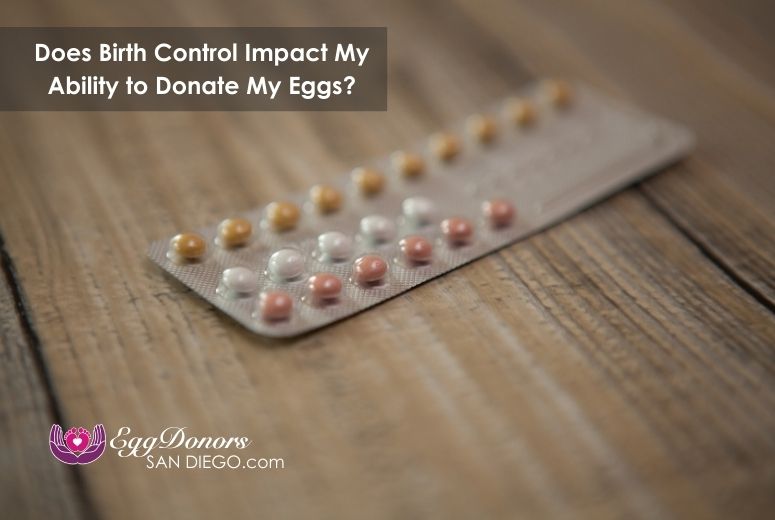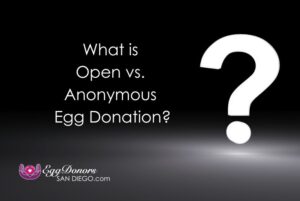If you are considering becoming an egg donor, you may wonder how your current use of birth control could affect your eligibility. At EggDonorsSanDiego.com, a leading in-house egg donor program under the guidance of Dr. Minoos Hosseinzadeh, understanding how different types of birth control impact the egg donation process is vital. Let’s explore the relationship between birth control and egg donation, shedding light on how various contraceptive methods may influence your journey as an egg donor.
Defining Birth Control’s Role in Egg Donation
Birth control methods, including pills, IUDs, patches, implants, and injections, can temporarily suppress ovulation or affect hormonal balance. However, most fertility clinics have guidelines in place to ensure that egg donors can safely proceed with donation after adjusting their contraception methods.
“Birth control plays a crucial role in managing reproductive health, but certain methods can impact the timing and readiness for egg donation,” explains Dr. Hosseinzadeh.
How Different Types of Birth Control Affect Egg Donation
Understanding the impact of various birth control methods on egg donation is essential for ensuring optimal egg health and a successful donation cycle.
Birth Control Pills and Egg Quality
Oral contraceptives work by preventing ovulation. While birth control pills and egg quality are not correlated, they temporarily suppress the natural ovulation cycle.
“Prospective donors can proceed with medical screening while still on birth control pills.” According to Dr. Hosseinzadeh, “Donors using birth control pills stop taking them just days before ovarian stimulation.”
IUDs and Egg Donation
Intrauterine devices (IUDs) are divided into hormonal and non-hormonal types.
- Hormonal IUDs (e.g., Mirena, Kyleena): These release progestin, which suppresses ovulation.
- Non-hormonal IUDs (e.g., Copper IUD): These do not interfere with ovulation.
“Non-hormonal IUDs are compatible with egg donation, while hormonal IUDs may require temporary removal for optimal results,” notes Dr. Hosseinzadeh.
Depo-Provera and Fertility
The Depo-Provera injection is a long-acting contraceptive that suppresses ovulation for several months.
Women using Depo-Provera often need to wait until the effects wear off before starting the egg donation process, as ovulation can take up to a year to return to normal. Once their regular menses is restored, they are eligible to apply for egg donation.
Birth Control Implant and Egg Donation
The birth control implant (e.g., Nexplanon) releases hormones that suppress ovulation.
“Donors using implants may need to have the device removed before they are eligible to donate their eggs to ensure the proper response to the medications used during the egg donation process,” advises Dr. Hosseinzadeh.
The Impact of Hormonal Contraceptives on Ovulation
Hormonal contraceptives like pills, patches, and implants are designed to prevent ovulation. While this is ideal for birth control, some can delay the egg donation process.
Key impacts include:
- Temporary suppression of ovulation
- Altered hormone levels
- Potential waiting period before proceeding with egg donor screening
Non-Hormonal Birth Control Options for Egg Donors
Women interested in egg donation may consider non-hormonal birth control options to avoid ovulation suppression. These include:
- Copper IUDs
- Barrier methods (e.g., condoms, diaphragms)
“Non-hormonal methods are a great option for women considering future egg donation.” says Dr. Hosseinzadeh.
When Can You Donate After Stopping Birth Control?
Timing is key when transitioning off birth control before donating eggs. Here’s a general guideline based on the method used:
- Birth control pills: No delay.
- Hormonal IUDs: After removal, with a return to a regular cycle.
- Depo-Provera: 6 to 12 months for normal ovulation to resume.
- Implants: After removal, with a return to a regular cycle.
- Patches: No delay.
“Most donors can proceed with the egg donation process after allowing their bodies time to return to their natural hormonal rhythm,” explains Dr. Hosseinzadeh.
Egg Donor Screening and Medications
Prospective donors undergo a comprehensive medical screening to assess their overall health and ovarian function. This screening includes blood tests, an ultrasound, a review of their family medical history, and a review of their medical history, including any contraceptives used.
“Our approach ensures that each donor is medically prepared for a successful egg donation experience,” says Dr. Hosseinzadeh.
FAQ
Yes, but your eligibility may depend on the type of birth control used. Adjustments may be required before donation.
There is no reason to stop taking birth control pills until it’s time to start the egg retrieval process. Then it’s just a few days as directed by the clinic.
Yes, non-hormonal IUDs usually do not impact egg donation eligibility.
Yes, hormonal implants are typically removed to ensure appropriate response to the medications necessary for the egg retrieval process.
No, but it may require a waiting period of up to 12 months for normal ovulation to return.
Ready to Take the Next Step?
If you are considering egg donation and want to learn more about how birth control impacts your eligibility, the experts at EggDonorsSanDiego.com, led by Dr. Minoos Hosseinzadeh, are here to guide you.









